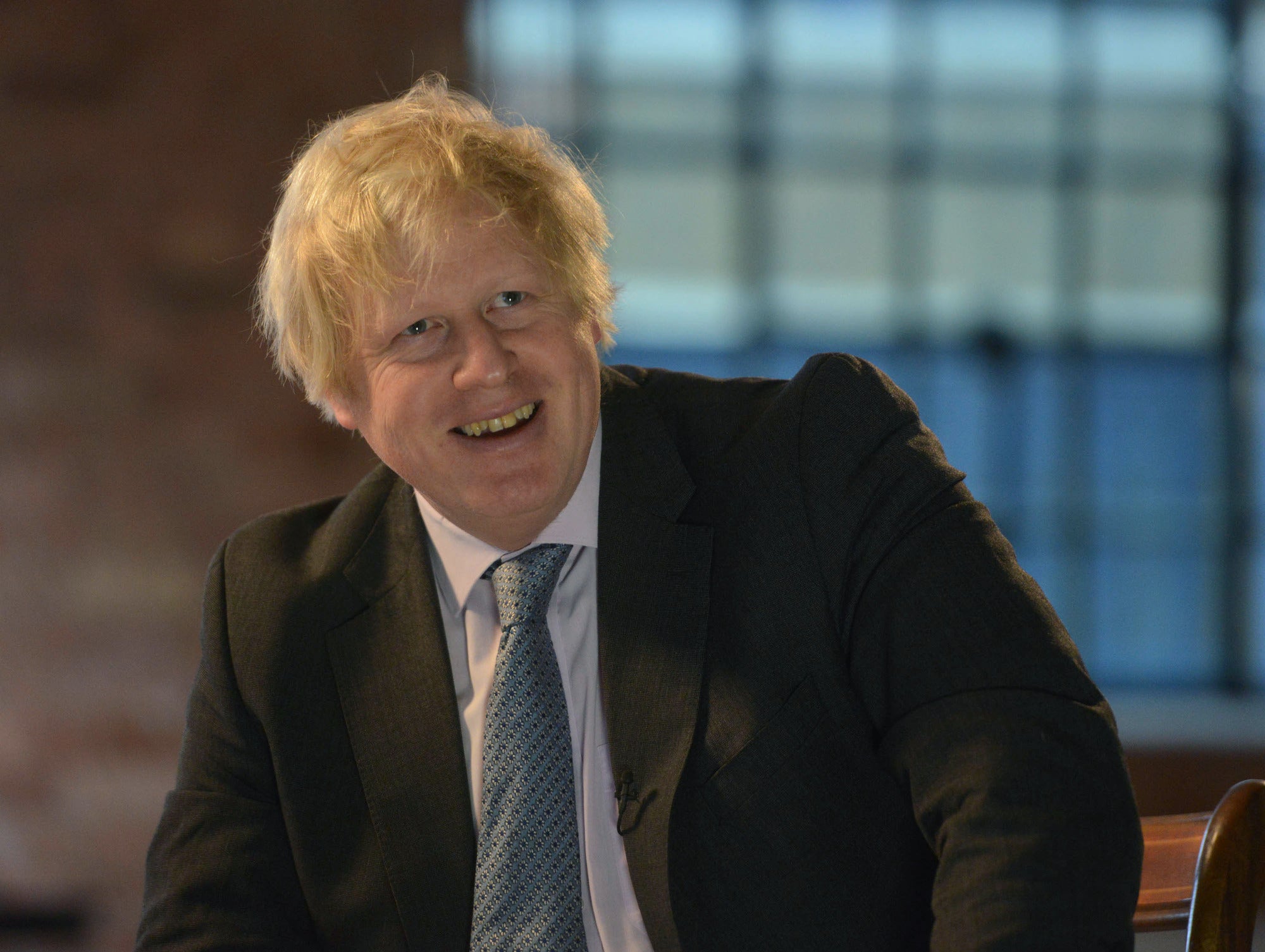TV review - Boris Johnson: the Irresistible Rise offered something more than just entertainment, BBC2
Wodehouse in Exile, BBC4

Your support helps us to tell the story
From reproductive rights to climate change to Big Tech, The Independent is on the ground when the story is developing. Whether it's investigating the financials of Elon Musk's pro-Trump PAC or producing our latest documentary, 'The A Word', which shines a light on the American women fighting for reproductive rights, we know how important it is to parse out the facts from the messaging.
At such a critical moment in US history, we need reporters on the ground. Your donation allows us to keep sending journalists to speak to both sides of the story.
The Independent is trusted by Americans across the entire political spectrum. And unlike many other quality news outlets, we choose not to lock Americans out of our reporting and analysis with paywalls. We believe quality journalism should be available to everyone, paid for by those who can afford it.
Your support makes all the difference.Eddie Mair might have pulled the trigger on Sunday morning, but Michael Cockerell fashioned the weapon and loaded the chamber. Boris Johnson: the Irresistible Rise, the latest of Cockerell's political profiles, would hardly have been a dull programme under any circumstances – its subject being incapable of opening his mouth without expelling a frivolity. But, with the help of Boris's cheerfully indiscreet sister, Rachel, it offered something more than just entertainment. The public will forgive a man who makes them laugh virtually anything. But whether Boris's political colleagues will care to test that proposition after this film is another matter.
It was a programme full of clever, unshowy story-telling, starting with the emblematic opening sequence of Boris playing tennis with his brothers and sisters, flailing about with an ancient wooden tennis racket. What you saw summed him up – a complete indifference to sartorial dignity, a naked flame of competitive instinct and a dogged commitment to the archaic, usually expressed by his vocabulary but here signified by a racket that looked as if it had been stored behind a radiator since 1936. How much power could such a comically amateurish object achieve, you might ask, which is pretty much the question that gets asked about Boris too, who has clowned his way to a point where it isn't regarded as risible to discuss the prospect of him getting the Prime Ministership. He always denies it, of course, quite aware that just as much as the public like politicians who make them laugh, they dislike those who conspicuously scheme for power. So it was one of Cockerell's coups to get him to admit to a hankering for the job, in typically Boris manner: "If that ball came loose from the back of a scrum, which it won't, it would be a great thing to have a crack at."
Cockerell's other achievement was to put all the serious charges to Johnson without coming across as priggish. He did it, rather tellingly, with a pincer movement of flat-screen televisions, surrounding Boris with monitors that played out moments of historical humiliation, whether it was being recorded agreeing to help a friend beat up a troublesome journalist or the exposure of his serial infidelities. At those points, the mask of joviality slipped and you caught sight of an unnerving solipsism. Asked what he felt on hearing himself collude in a planned assault, he said: "Obviously, I feel indignation that people tape my private phone conversations." And he blocked questioning about his affairs with, "All that turned out for the best in my view." As long as it was good for you, Boris. I thought it forensically exposing of Johnson's sense of entitlement and ethical recklessness (Cockerell also nailed him in a prevarication over the Bullingdon Club). But then again, that's been exposed before without doing him lasting damage.
Oddly, P G Wodehouse's ability to make people laugh did not protect him from public opprobrium after he recorded some humorous broadcasts during his internment by the Germans during the Second World War. Nigel Williams's drama Wodehouse in Exile was the case for the defence (deliberately suppressed by the Government after the war). Essentially, it was a plea of not guilty by reason of incapacity – Wodehouse presented here as a kind of overgrown child, so devoid of malice and calculation that he simply couldn't recognise when he was being duped. Tim Pigott-Smith was touching as Plum, dismayed to find that what he thought was a show of stiff upper lip was taken as betrayal. But the drama was often far too direct in its manner. It doesn't get you off the hook if you end one of those scenes in which one party tells the other what they already know, with, "Do I have to spell it out for you?" – it just beds the hook deeper.
Join our commenting forum
Join thought-provoking conversations, follow other Independent readers and see their replies
Comments